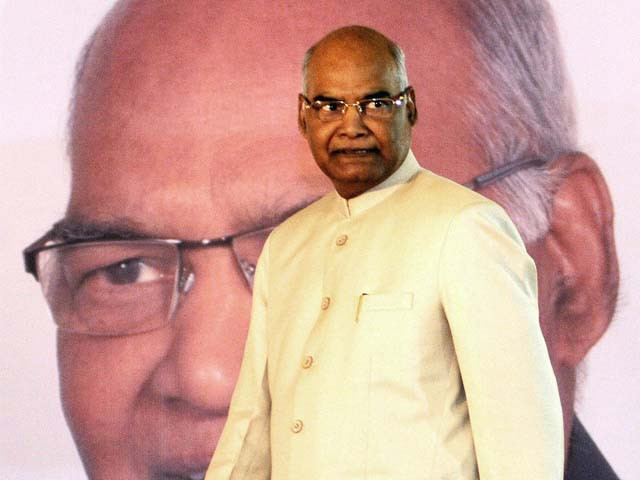Fast forward two months down the lane after this incident, the 71-year-old former lawyer and state governor was elected as India’s second Dalit president.
Before June 19th, the day the National Democratic Alliance (NDA) elected Kovind as its presidential candidate, nobody really knew the man that was running for the country’s highest constitutional post. His nomination not only surprised political watchers but also surprised the common man.
The only time Kovind came into the national spotlight was when he interrupted Lalu Prasad Yadav’s son, Tej Pratap Yadav, during his swearing-in ceremony and corrected him by saying,
“It is apekshit (expected), not upekshit (neglected).”
He even made the fumbling Yadav take the oath twice.
All eyes will be on him as he takes the onerous office as the 14th president of the largest democracy in the world.
Whatever the reason may be – political outreach, caste politics and/or strategic political compromise – the NDA’s decision to handpick Kovind as the head of state candidate, even though he hails from a Dalit (untouchables) background, is a huge step for India in more than one way.
Kovind is obviously Bharatiya Janata Party’s (BJP) strategy to woo Dalits in order to bring them under one big Hindu umbrella. No wonder NDA has been promoting his past work towards Dalit upliftment. However, just because a Dalit is the head of the state doesn’t automatically mean the Dalit community will forgive and forget the disgusting episodes in Una and Saharanpur.
Is Kovind’s entry into the Rashtrapati Bhawan (president’s official home) expected to wash away the scars inflicted on the Dalit community? Is it supposed to make us forget the recent caste-related violence in Saharanpur, the public flogging of the Dalit youths in Una, and Rohith Vemula’s suicide? BJP should remind itself that electorates in India will not get distracted by such shiny baubles.
Besides, now that Kovind has been labelled as an uncontroversial figure, he won’t be an unthinking rubber stamp like his party wants him to be. Going by the records, he is expected to apply his mind before arriving at decisions just like the former Dalit President Kocheril Raman Narayanan.
The decision of nominating Kovind as a presidential candidate may or may not be a political masterstroke by Narendra Modi and his team, but for India to thrive as a democratic and secular nation, it surely is.
Since Kovind and the office of the president have largely been non-controversial, the nation is hopeful that he’ll keep the office of presidency above party politics.
Every Indian knows that a Dalit president does not have the power to emancipate the Dalit community and/or marginalised sections of society from discrimination and hatred. But there is still some hope that he can help in their on-going mobilisation of education and employment.
Kovind not only has enough administrative experience as a member of several parliamentary committees, but he also has vast experience of being in a constitutional post as the governor of Bihar.
As a professional lawyer, Kovind also provided free legal services to the weaker sections of society, especially the Scheduled Castes/Scheduled Tribes (SC/ST) women and Economically Backward Classes’ (EBC) girls under the umbrella of the Free Legal Aid Society in Delhi.
Furthermore, these attributes of the president give us hope that despite his association with a party known for its upper caste leanings, he won’t act euphonious towards the uplifting of SC/ST and minorities only, but will also serve the remaining Indian citizens that are constantly ignored and overlooked.
Even though such proletarians are sneered at by some of the Lutyens’ intellectuals, they are role models and a source of empowerment for the majority.
Kovind is a man who can empathise with the common Indian since he has suffered the same hardships. The fact that a Dalit was elected by a unanimous vote illustrates how the common man identifies himself with the president and that is a big step for India. But associating him with his caste is an injustice to his national identity.
India is becoming increasingly intolerant towards it minorities, therefore I feel his election came at the correct time. His election may just put an end to the heinous acts of belligerence committed by right-wing fascists, including the brigade of gau rakshaks (cow protection vigilantes).
Kovind represents the true India. He represents the aam aadmi (common man), which constitutes the majority of India, agrarian, rural, socially and economically underprivileged.



COMMENTS
Comments are moderated and generally will be posted if they are on-topic and not abusive.
For more information, please see our Comments FAQ